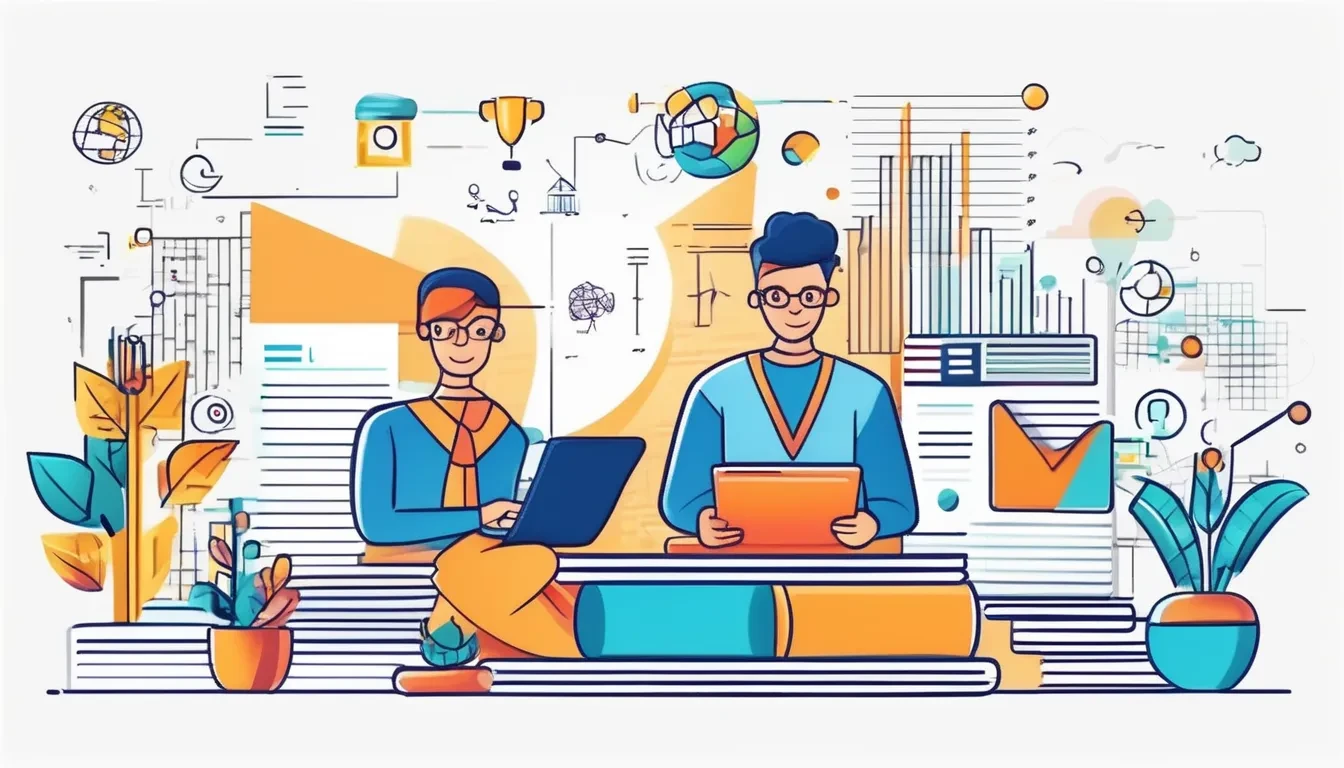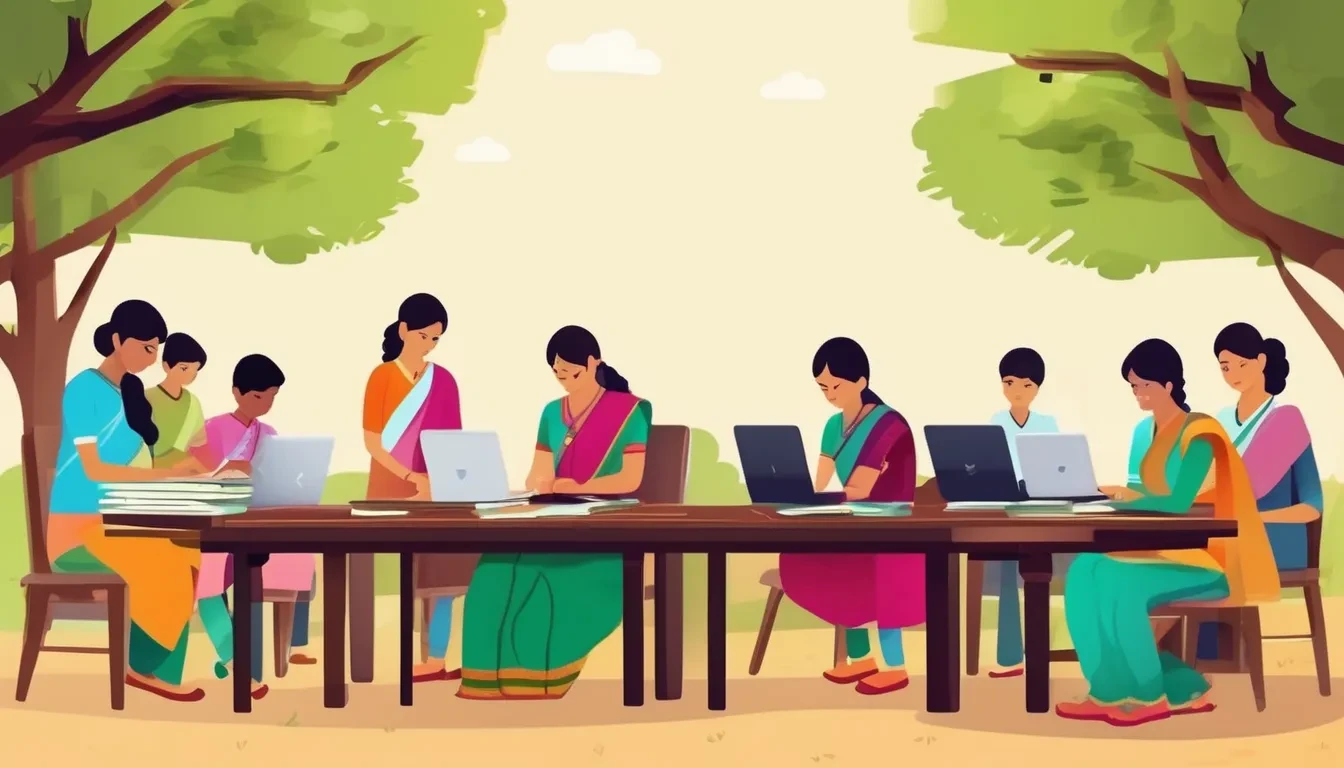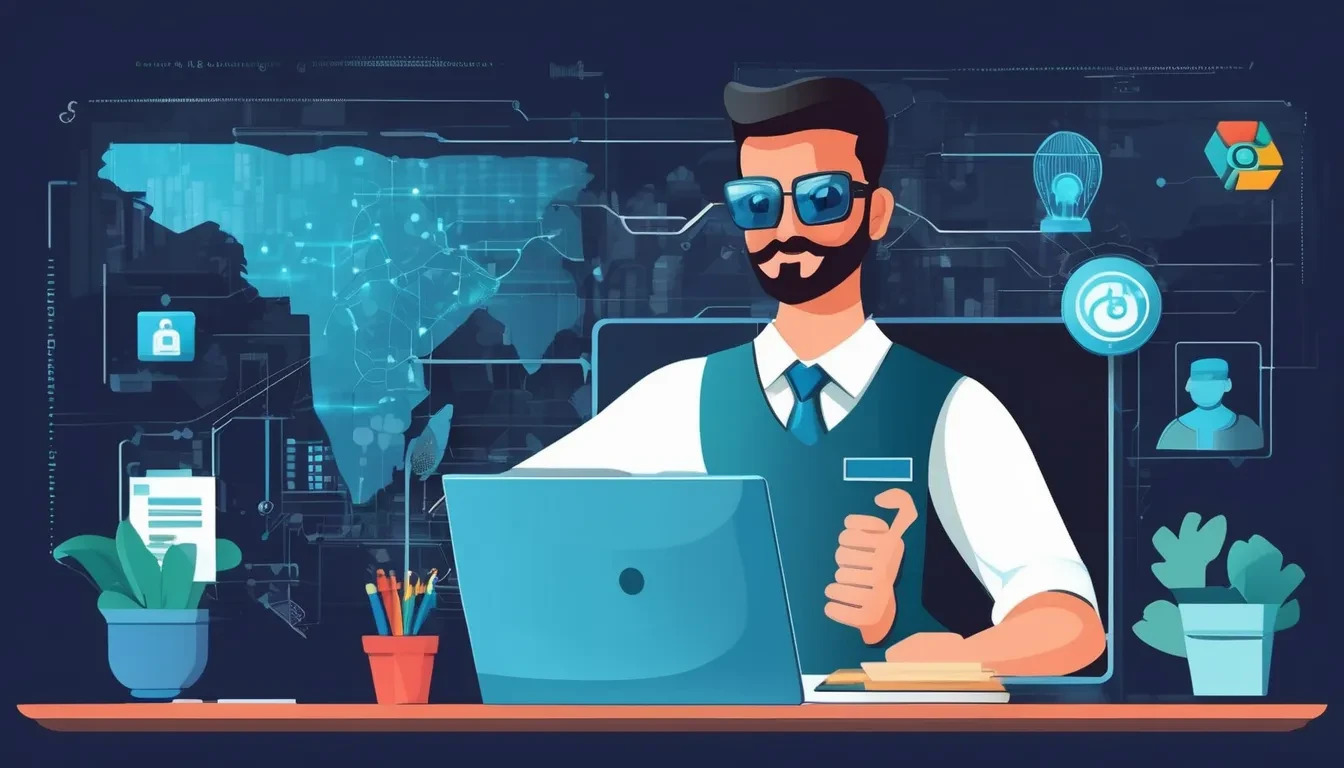
The education landscape in India has undergone a dramatic transformation in recent years. Fueled by advancements in technology, increasing internet penetration, and the demand for flexible learning solutions, online learning has become a cornerstone of modern education. As we look to the future, several key trends are shaping the trajectory of online learning in India. These trends not only redefine how education is delivered but also how it is accessed, consumed, and perceived by learners across the country.
- Personalized Learning Through AI and Machine Learning
- Gamification for Enhanced Engagement
- Integration of Virtual Reality (VR) and Augmented Reality (AR)
- Focus on Skill-Based Learning
- Microlearning: Bite-Sized Education
- Regional Language Content
- Growth of Live Interactive Classes
- Hybrid Learning Models
- Emphasis on Soft Skills Development
- AI-Powered Assessment and Feedback
- Blockchain for Credentialing and Verification
- Sustainability in Online Education
One of the most exciting advancements in online education is the rise of personalized learning. Artificial Intelligence (AI) and Machine Learning (ML) are enabling platforms to tailor educational content based on individual learning styles, pace, and preferences. For instance, AI- powered tools can analyze a student’s progress and suggest customized learning paths to improve outcomes. This level of personalization enhances engagement, ensures better retention, and fosters a deeper understanding of concepts.
Gamification has emerged as a powerful tool to make online learning more engaging and interactive. By incorporating game-like elements such as points, leaderboards, badges, and challenges, edtech platforms are making learning fun and competitive. Gamification not only motivates students but also improves participation and learning outcomes.
Why it matters: Research shows that gamified learning can boost student engagement by up to 60%, making it an essential trend for the future of online education in India.
The integration of VR and AR in online education is revolutionizing the way students interact with content. These immersive technologies provide hands-on experiences, allowing learners to explore complex concepts in a virtual environment. For instance, medical students can perform virtual dissections, and engineering students can experiment with 3D prototypes.
Impact: VR and AR enable experiential learning, which is especially valuable in subjects requiring practical application.
In an era where employability is a significant concern, online education is shifting its focus towards skill-based learning. Courses tailored to develop industry-relevant skills, such as coding, digital marketing, data analytics, and graphic design, are gaining traction. These courses often include certifications that enhance job prospects.
Market Insight: With initiatives like Skill India and partnerships with global organizations, the Indian government is actively promoting skill development through online platforms.
Microlearning has become increasingly popular among learners who prefer short, focused lessons that can be completed in a few minutes. This trend caters to busy professionals, students, and lifelong learners looking for specific knowledge without committing to lengthy courses.
With over 22 officially recognized languages and hundreds of dialects, India’s diversity poses a unique challenge for online education. To bridge this gap, many platforms are now offering courses in regional languages. This localization ensures that quality education reaches learners in Tier 2 and Tier 3 cities and rural areas.
Future Outlook: Regional language content will play a pivotal role in democratizing education and expanding the reach of online learning in India.
While recorded lectures have their benefits, live interactive classes are becoming increasingly popular. They provide a sense of real-time engagement and allow students to interact directly with instructors and peers. This trend is especially prominent in K-12 education and competitive exam preparation.
The future of education in India is likely to be a blend of online and offline learning. Hybrid models combine the flexibility of online education with the hands-on experience of traditional classrooms. Schools, colleges, and coaching centers are adopting this approach to offer a holistic learning experience.
Why it matters: Hybrid models cater to diverse learning preferences and ensure that students get the best of both worlds.
In addition to technical skills, online education platforms are increasingly focusing on soft skills such as communication, leadership, time management, and emotional intelligence. These skills are essential for overall personality development and career growth.
Traditional assessment methods often fall short in providing actionable insights. AI-powered tools are now being used to evaluate student performance, identify learning gaps, and offer constructive feedback. This real-time assessment ensures continuous improvement and better learning outcomes.
Impact: Automated grading systems and AI-driven analytics are transforming the way educators assess and support students.
Blockchain technology is being explored for secure credentialing and verification of academic qualifications. This ensures that certificates and degrees are tamper-proof and easily verifiable by employers and institutions.
Future Potential: Blockchain has the potential to revolutionize academic records management, ensuring transparency and trust.
Online education contributes to sustainability by reducing the need for physical infrastructure, printed materials, and travel. As environmental concerns grow, this aspect of online learning will become increasingly significant.
Example: A study found that e-learning can reduce energy consumption by up to 90% compared to traditional education methods.
Challenges and Opportunities
While the future of online learning in India is promising, it is not without challenges. Issues such as the digital divide, internet connectivity, and affordability need to be addressed to ensure equitable access to quality education. However, with government initiatives like Digital India and partnerships with private players, these challenges are gradually being mitigated.
Conclusion
The future of education in India is being shaped by innovative trends that prioritize accessibility, engagement, and employability. As online learning continues to evolve, it holds the potential to bridge gaps in traditional education and empower learners from all walks of life. By embracing these trends, India can unlock the full potential of its human capital and pave the way for a brighter, more inclusive future.


.png)